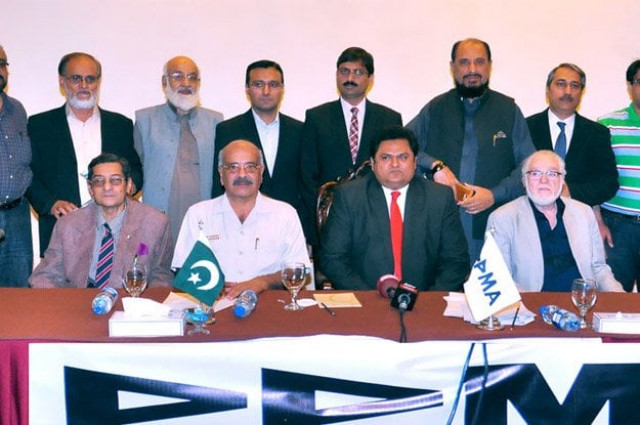Drug pricing: PPMA offers mediation as standoff continues
Wants 15 to 20% increase in retail price, Section 12 of Drugs Act 1976 to be undone

PPMA Central Chairman Hamid Raza addressing a press conference. PHOTO: NNI
“It is high time for the Section-12 of Drugs Act 1976 to be undone or at least amended not only for the survival, continuity and growth of the local pharmaceutical industry but also for safeguarding the basic interests of the ailing citizenry,” said PPMA Central Chairman Hamid Raza at a press conference.
He suggested the regulatory powers of the Drug Regulatory Authority of Pakistan (DRAP) be confined only to the ‘Model List of Essential Medicines’ of the World Health Organisation, which is globally accepted as the list containing all life-saving and other emergency medicines needed by hospitals.
“Almost nowhere in the world, including the most advanced countries, the state has ‘blanket control’ over prices of all medicines as is the case in Pakistan,” said Raza.
“We, being representatives of local drugs’ manufacturers, are always available at any place to mediate the current dispute between the government and multinational pharmaceutical companies but the middle ground in the troublesome situation can only be reached when the government is ready to review its pricing control powers for medicines”, added the PPMA central chairman.
He said that patients in the country would be the ultimate sufferers if the government persisted with its irrational price control policy as locally-manufactured medicines with affordable rates, used for treating common diseases, would no longer be available in the market.
“Already the situation has become serious as some 70 to 80 medicines have vanished from the market as their indigenous manufacturing is no longer a viable production option for the local pharmaceutical industry,” he said.
The medicines no longer available in the market are prescribed for treating epilepsy, thyroid disease, and for some neurological disorders, he said.
“The government has been, in fact, doing a disservice to its people by freezing prices of medicines since 2001 and now by not entertaining petitions from local and multinational drug manufacturers for a reasonable increase in prices,” said Raza.
He said 15 to 20% increase in retail prices of medicines had become mandatory and a reasonable option both for the consumers and industry given the inflation and exchange rate.
Published in The Express Tribune, February 27th, 2016.
Like Business on Facebook, follow @TribuneBiz on Twitter to stay informed and join in the conversation.


















COMMENTS
Comments are moderated and generally will be posted if they are on-topic and not abusive.
For more information, please see our Comments FAQ